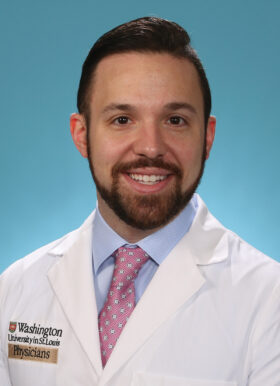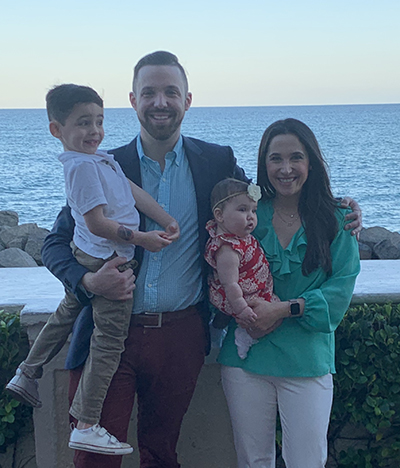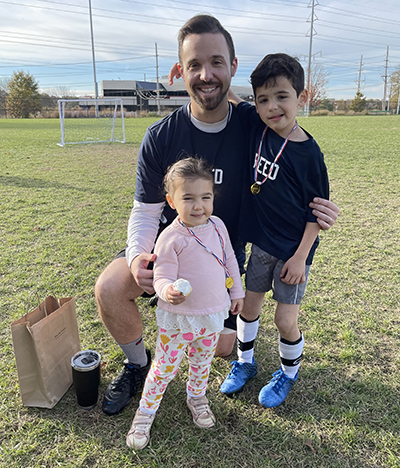Max Rosen, MD

Max Rosen, MD, is a child and adolescent psychiatrist who specializes in Attention Deficit/Hyperactivity Disorder (ADHD), mood disorders (such as depression and bipolar disorder), anxiety disorders, autism spectrum disorder, and schizophrenia.
Patients are seen at:
- 4444 Forest Park Avenue Building
4444 Forest Park Avenue, Suite 2600
St. Louis, MO 63108
To make an appointment with Dr. Rosen or one of his colleagues, please call 314-286-1700.
What happened in the course of schooling to influence you to choose your specialty of pediatric psychiatry?
I knew I wanted to specialize in pediatrics because I’ve always enjoyed working with children – teaching, tutoring, as well as mentoring. During my first year of medical school, I exposed myself to a few of the different fields of pediatrics — shadowing a pediatric hospitalist, pediatric endocrinologist and a general outpatient pediatrician.
I enjoyed those experiences and really coveted the problem-solving that was part of being a pediatrician. Next, I was exposed to pediatric neurology via getting involved with the outstanding clinical pediatric neurologists at SLCH and pediatric stroke researchers. I saw the potential within the field of neuroscience, which has a very strong curriculum here at Washington University. But it was during my rotation through child psychiatry when everything clicked. I saw the passion of the pediatric psychiatrists and it was a privilege, as a physician, to be a part of the personal lives of these children and their families. I have never doubted my choice.

What brought you to Washington University?
I’m from Washington, D.C. and wanted to go to college somewhere besides the east coast. I came here in 2006 for my undergraduate degree and was instantly in awe of the school. I appreciated the mentorship that was given to students. Since then, that mentorship continued every step of the way — from medical school through my adult and child psychiatry training, and now as a junior member of the faculty.
I had one mentor- Dr. Anne Glowinski, a former member of the Division of Child Psychiatry- whose warmth and presence showed me the possibilities that existed within academic child psychiatry. She showed how to be an empathic and compassionate teacher, educator and clinician.
Which aspect of your practice do you find most interesting?
It is hard to pick a single aspect. As a general child psychiatrist, I enjoy the breadth of the patients I’m trained to see. I see 18-month-olds for evaluations for autism and speech and language disorders, 18- year-olds for anxiety and mood-related concerns — as well as everything in between.
I grow with my patients through high school and as they transition to the next chapter of their lives – college, community college or trade school. To be able to continuously try to help my patients of all ages is what I enjoy the most.
What new developments in your field are you most excited about?
Neuroscience continues to be on the frontier as we continue to learn more about the brain – but there is still a lot we don’t know.
We are working to understand how we can better assess and predict depression and anxiety in children. This would allow us to intervene earlier to try to prevent these chronic and debilitating health issues. This may mean using different parenting or social engagement interventions –intervention doesn’t always involve medicine. The earlier we intervene, the bigger impact we can have in the lives of these kiddos who might struggle from a neurodevelopmental or mood disorder.
These new developments of psychotherapeutic interventions are really exciting in the field of child psychiatry.

Are there any new medications for ADHD?
Because it can sometimes be hard for a child to take ADHD medication in the traditional route (swallowing), new types of release for capsules and pills are continuously being created. The medications still have the same active ingredients, but they may come in a liquid, chewable or dissolvable form.
The field of psychopharmacology continues to be pushed forward and studied for the kids we see. Medications used for treatment of severe depression in adults have recently been improved, and we are now studying the impact these medications would have on adolescent depression.
How is autism usually treated?
There are no medications to treat autism. The gold standard treatment is called Applied Behavioral Analysis (ABA), and is a form of behavioral therapy that helps children and their families through challenging behaviors.
There are two FDA-approved medications to treat the irritability that can sometimes be associated with the restricted and repetitive behaviors associated with autism.
What was it like growing up in Washington, D.C.?
Washington, D.C. had a lot of culture and was a fascinating place to grow up. I went to school with international students and politicians’ children. I definitely felt privileged to be exposed to many viewpoints and a worldly view of topics.
What is your favorite museum in Washington, D.C.?
The Natural History Museum is the one I enjoyed the most. When I go home to visit, I always I take my two kids there. They probably enjoy the Air and Space Museum the most — which is also pretty spectacular and a close second for me.
Which particular award or achievement is most gratifying?
My most gratifying award has been the Resident of the Year award –which I received in 2016 when I was an adult psychiatry resident. It was awarded and voted on by the medical students and given to residents who had an impact on their education as a clinical student.
Because of who it came from, this has been the most meaningful award. It spurred my continued path in education and my role as associate clerkship director for psychiatry.
What is the best advice you’ve received?
The best advice was to keep an open mind when going to medical school. It’s like being a kid in the candy store because medical school offers all these intellectually stimulating aspects of medicine, patient care and research. It is very easy to become close-minded and lean towards one particular field, without considering all the options.
I’m glad I had the opportunity to experience medicine across the different specialties during my training. Being exposed to all the possibilities enabled me to make an informed decision about my career as a future physician.
If you weren’t a doctor, what would you like to be doing?
If I weren’t a doctor, I would probably be a high school teacher. I had a high school teacher who had a huge impact on me, and not only pushed me into the direction of science, but also encouraged me to be open-minded and a critical thinker.